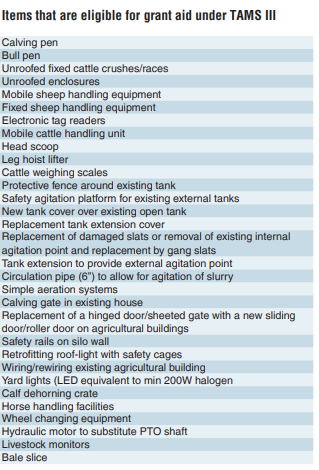Safety during Busy Times on the Farm
Safety during Busy Times on the Farm 21 June 2024 Type Media Article By Martina Donnelly, B&T Drystock Adviser, Teagasc Galway/Clare The summer is some of the busiest times on Irish farms with many essential activities taking place. Children are on holidays from school and may be out and about on farms. With this in […]
By By Martina Donnelly, B&T Drystock Adviser, Teagasc Galway/Clare
Safety during Busy Times on the Farm
Type Media Article
By Martina Donnelly, B&T Drystock Adviser, Teagasc Galway/Clare
The summer is some of the busiest times on Irish farms with many essential activities taking place. Children are on holidays from school and may be out and about on farms. With this in mind it is important that we all remain vigilant while working on the farm over the summer months. Statistics from the Health and Safety Authority (HSA) show that over 90% of farm fatalities involving children had a farm vehicle or machine involved. Young children should not be allowed near tractors or farm vehicles. Make plans to ensure that children always have adult supervision when on the farm. Even stationary tractors, farm vehicles and machinery pose a high risk due to sharp edges, moving machinery parts and the possibility of falls from the machine.
One of the big events over the summer is silage making and safety should be to the fore during this time. The days are long and often we have a short window to getting silage preserved. This can put extra pressure on farmers, contractors and fatigue can be a big risk factor. It is important to engage with your contractor and proactively work with them in relation to planning work on your farm. Contractors are very aware of the impact of long working hours on their driver’s and their ability to manage machines in a safe way. Take time to prepare for their arrival. Tidy yards, keep hedges trimmed at gateways, ensure there are no animals in sheds during slurry agitation. These are some ways of making your farm safer for your contractor.
A significant proportion of silage is now made as bales and the HSA report that 5% of farm workplace deaths are the results of falling bales. When working with bales, ensure that the driver is aware of the ground conditions such as slopes and are aware of any overhead power lines.
If on the road transporting bales drivers must ensure that they have a clear view ahead. Inappropriate use of front loaders can dramatically reduce visibility and stability. It is recommended to have two or more spikes in a bale to prevent rotation or loosening of the bale during transport. When travelling on the road without a bale the bale spikes should be removed, covered or folded back so as not to pose a risk to road users. Accidents with bales can also occur when they are inappropriately stacked. The HSA state the maximum height of for stacking silage bales should be 3 bales high. Where the bales are not very dense the maximum height of two bales is advised.
Where stacking is necessary, stack them on their curved sides. Stacking of round bales on their ends is not recommended as bales may lean sideways if they settle during storage. Bales can be placed on their ends in a single layer on the ground provided the ground is level.
When dealing with livestock over the summer make safety the priority. All animals can be unpredictable so regardless of how ‘quiet’ an animal may seem care needs to be taken. It is important that time is taken to think before each animal handling task. Plan the task and carry out necessary preparatory work to avoid dangerous situations arising. Planning and preparation will help to better manage animal behaviour, secure handling equipment and avoid high-risk activity. Always cull dangerous animals, plan an escape route from fields and pens and keep a physical barrier between you and the cow during calving/dehorning.
The Targeted Agricultural Modernisation schemes (TAMS III) grants offer 60% grant aid for certain safety equipment through the Farm Safety Capital Investment Scheme, (FSCIS). Tranche 4 is now open and will close for applications on 6th September. This scheme provides incentives to invest in equipment that would help improve safety on the farm. Grant aid under the scheme will be paid at a rate of 60% up to a maximum of €90,000.
Talk to your Advisor about the possibilities for your farm under this scheme and stay safe during this busy summer time. See Figure 1 for list of eligible items.

